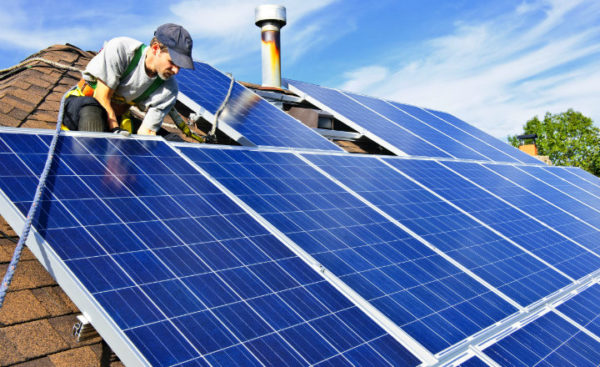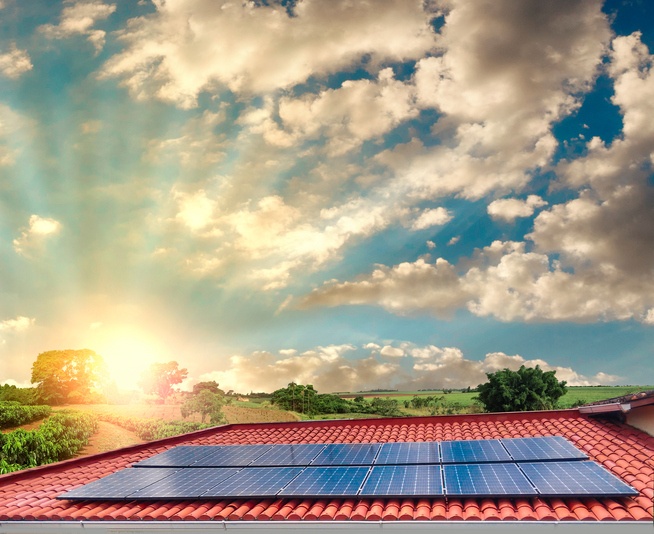SOLAR CELLS DEFINITION
Next we will analyze the concept of solar cell, that is, we will see the definition of solar cell .
A solar cell uses the energy from the sun to transform it into electrical energy .
These devices are composed of solar cells made of crystalline silicon , which has the property of converting sunlight into electricity.
The larger the panel, the greater the energy it receives from the sun and therefore the greater the generation of electricity.
SOLAR CELLS DEFINITION
A solar cell is a device capable of converting the energy coming from solar radiation into electrical energy. The vast majority of solar cells that are currently commercially available are mono or polycrystalline silicon

To be able to work, the solar cells must receive the solar rays directly . Its main use is of domestic type, since these are usually placed on the roofs of homes to provide electricity to appliances.
Solar cells are the fundamental component of solar panels.
There are three types of solar panels:
- Photovoltaic: are those panels described above, capable of generating enough energy to meet the needs of the home.
- The thermal: this kind of panels should be used in homes that have an optimal reception of sunlight and also have enough space to place them, since they are larger than photovoltaic, because otherwise they would not be efficient. Thermal panels work the same as photovoltaic panels , with the only difference being that thermal panels contain a liquid that absorbs heat .
- Thermodynamics: these are the most used, nowadays in homes, since they are more economical, more efficient and can be used for many more things. Among its advantages is that it can absorb energy, even if it is cloudy or raining. This means that these panels have the characteristic of capturing any type of energy in any environment, as long as the outside temperature is not less than 0 degrees.
Solar panels are beneficial for the environment because the energy they produce is clean and renewable ; besides contributing with the energetic saving , his installation is fast, the maintenance is minimum and have long useful life.
It is true that at first, being able to install these devices would be a bit expensive , however, everything that is invested can be recovered over time and people will be rewarded by receiving free electric power.
Among the negative aspects, we could mention the weather , since panels such as photovoltaic only work if it receives direct sunlight , meaning that on a cloudy day it will not work properly.





